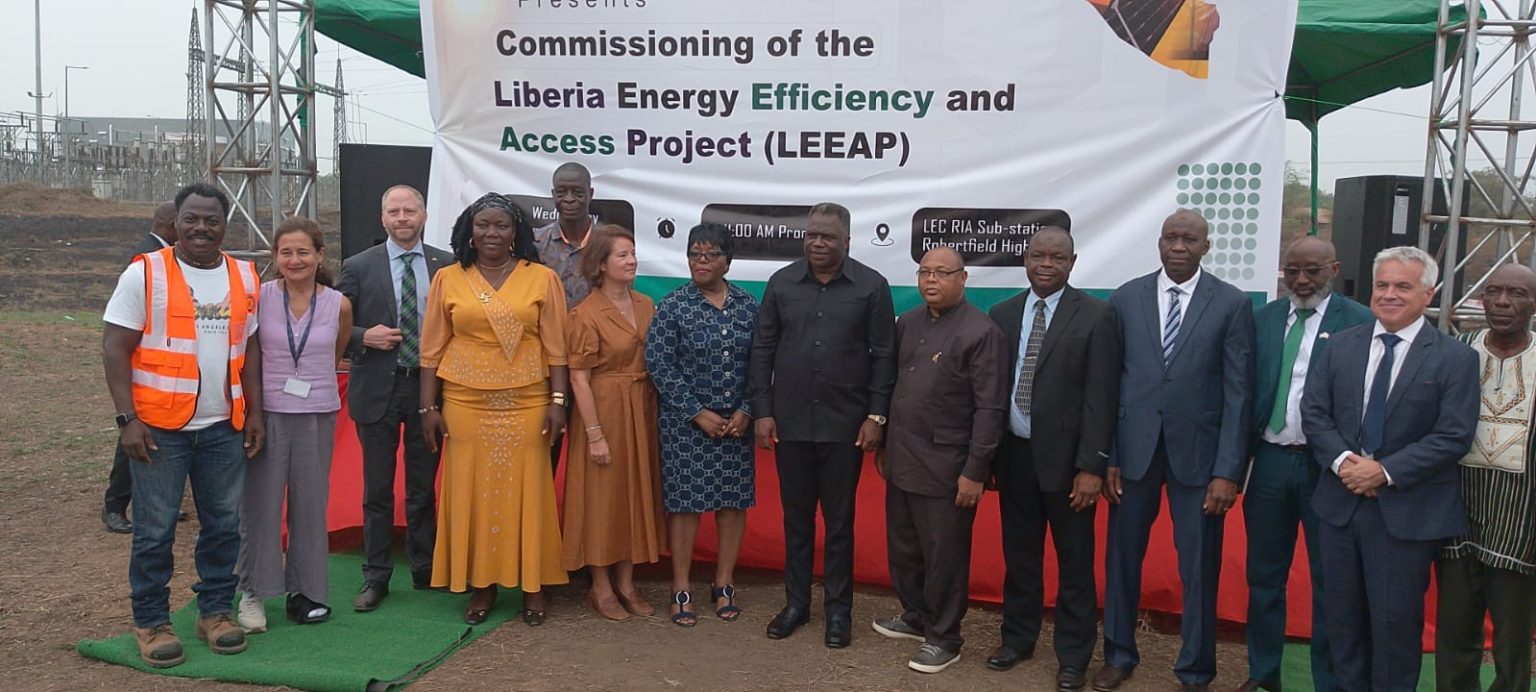The Liberia Electricity Corporation (LEC), in collaboration with a consortium of international partners, has achieved a significant milestone in its quest to expand electricity access nationwide. The Liberia Energy Efficiency and Access Project (LEAP), funded by the European Union, African Development Bank Group, Global Gateway, and Global Environmental Facility (GEF), has successfully connected Roberts International Airport (RIA) and nearly 400,000 new customers to the national grid. This achievement signifies a substantial step towards enhancing Liberia’s energy infrastructure and improving the lives of its citizens. The project’s funding structure reflects a collaborative approach, with the Liberian government contributing 3% of the resources, the African Development Fund (ADF) providing 30%, the EU-Africa Infrastructure Trust Fund (EU-AITF) contributing 26%, the Nigerian Trust Fund (NTF) providing 22%, and the Transition Support Facility (TSF) contributing the remaining 13%.
The official commissioning ceremony, held in Unification City, marked not only the connection of RIA to the grid but also the broader impact of the LEAP project. The project has extended electricity access to a diverse range of beneficiaries, including 50 healthcare facilities, 65 educational institutions, 43 government or public buildings, and 50 small businesses. This expanded access will contribute significantly to improved healthcare services, enhanced educational opportunities, more efficient public services, and support for local entrepreneurship. The project’s infrastructure developments, including the construction of new transmission lines and substations, as well as the expansion of the distribution network, create a robust foundation for future growth and connection of even more Liberians to the national grid.
Beyond the immediate beneficiaries, the LEAP project has also generated broader socio-economic benefits for Liberia. The project created over 6,000 jobs during its implementation phase, with a notable emphasis on female participation, with approximately 225 women involved. This job creation not only provides economic opportunities for individuals but also contributes to strengthening local communities. Improved street lighting facilitated by the project has also enhanced public safety and contributed to reduced crime rates in key areas. Furthermore, increased access to electricity fosters stronger community bonds by enabling social gatherings, improved communication, and facilitating the growth of local businesses.
LEAP has not only focused on infrastructure development but also on capacity building and institutional strengthening within Liberia’s energy sector. Over 110 personnel from various governmental agencies, including the LEC, Ministry of Mines and Energy (MME), Environmental Protection Agency (EPA), Ministry of Finance and Development Planning (MFDP), Rural and Renewable Energy Agency (RREA), and the Monrovia Vocational Training Center (MVTC), received training through the project. This investment in human capital development equips these institutions with the necessary skills and expertise to manage and maintain the expanded electricity infrastructure effectively. The provision of essential tools and equipment further enhances their operational efficiency.
The European Union’s significant contribution to the LEAP project, amounting to €107 million, underscores its commitment to supporting sustainable development in Liberia. This investment positions the EU as the leading grant donor to the Liberian energy sector. The EU’s support aligns with Liberia’s efforts to combat climate change, reduce electricity costs, and redirect investments towards other critical areas. The EU-Africa Infrastructure Trust Fund, a key funding instrument for LEAP, exemplifies the EU’s dedication to fostering sustainable economic growth in sub-Saharan Africa through investments in crucial infrastructure projects across various sectors.
The connection of RIA to the national grid holds particular significance in Liberia’s fight against climate change and its efforts to reduce greenhouse gas emissions. While backup generators will remain essential for ensuring uninterrupted operations at the airport, the availability of grid electricity is expected to significantly reduce RIA’s reliance on fossil fuels, thereby lowering its operational costs and environmental impact. The cost savings achieved through reduced reliance on generators can then be reallocated to other crucial areas, such as airport safety enhancements. The LEAP project represents a collaborative success story, demonstrating the positive impact of international partnerships in driving sustainable development and enhancing the lives of Liberians. The project’s multi-faceted approach, encompassing infrastructure development, capacity building, and socio-economic benefits, positions Liberia for a future powered by reliable and accessible electricity.


